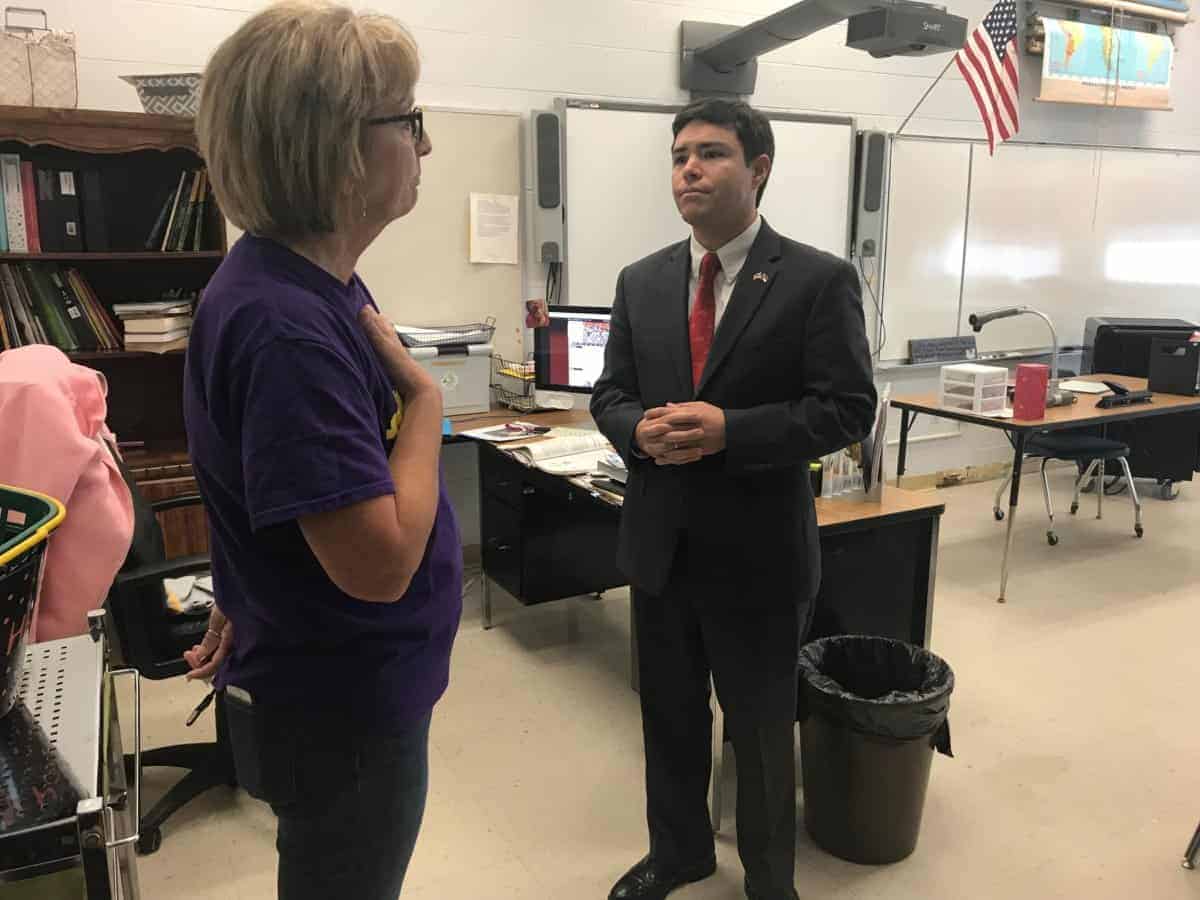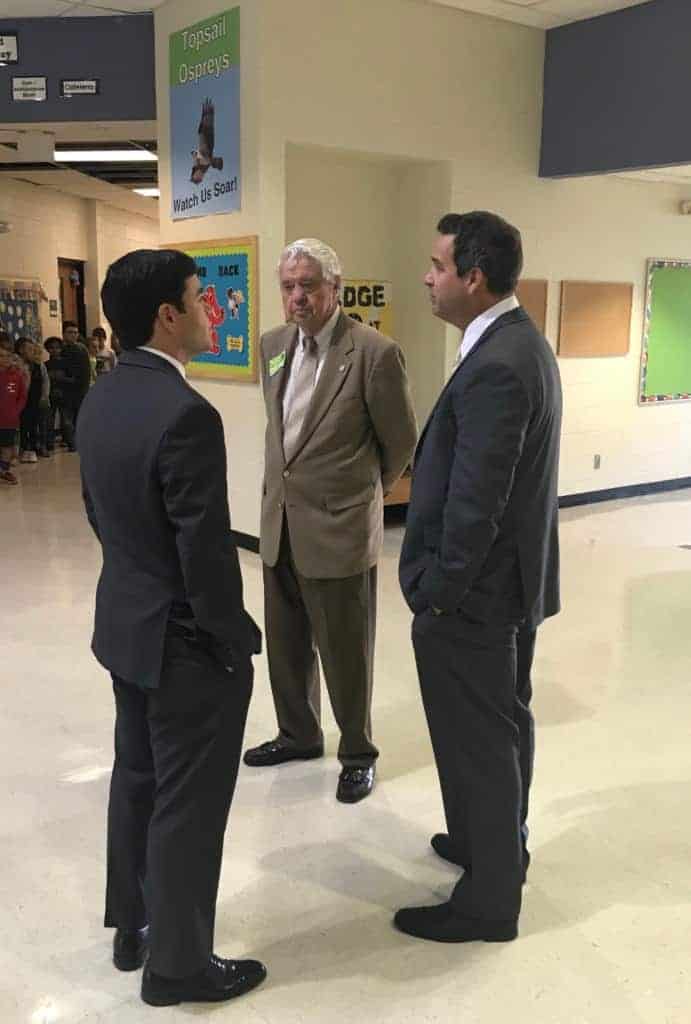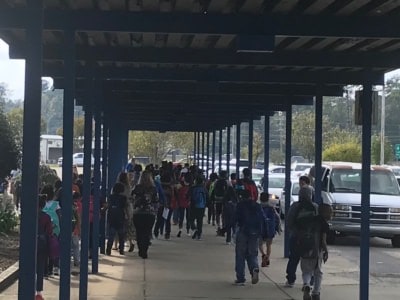
State Superintendent Mark Johnson toured schools in eastern North Carolina counties on Monday, checking on the progress made, bringing a message of support to administrators and teachers, and promising to keep the many remaining struggles throughout the region at the front of the minds of state government officials in Raleigh.
“We want to make sure we help local districts become whole again,” Johnson said. “I’m just so grateful for the leadership, the staff, students, and families. I want them to know that we know how much they’ve gone through, and Raleigh is with them through the long road to recovery.”
Johnson began his day in Pender County at Topsail Elementary, where he met with teachers and administrators. Topsail, and other Pender County schools, welcomed students back on Monday.

Walking the halls, it was like any other first day of school. Except this time, Halloween is right around the corner.
By mid-morning, Johnson made his way to Duplin County, where he visited Chinquapin Elementary. When EdNC visited the area three weeks ago, the school was closed off and crews in hazmat gear were working cleanup and finding ways to stuff a seemingly never-ending stream of debris into the bevy of already-full dumpsters. On Monday, the school looked barely lived-in.
“You can eat off these surfaces when they pass the test,” joked Director of Public Relations Dawn Craft.
Craft explained the rigorous testing that Duplin County schools, and all schools in impacted counties, underwent. It started with air scrubbers and crews touching every surface to clean. They then sealed off the area and let it sit with monitors for 24 hours. Next, the tests were driven to Raleigh for a three-hour process of analyzing results.
The outcome is pass/fail, meaning if even only a minor issue was found, entire areas had to be re-scrubbed and the process started all over again.
Adding to the intricate process was the fickle nature of issues presenting themselves. One day crews would walk a hall that seemed fine. The next day, ceiling tiles were hanging down. In fact, Craft estimates that Duplin County had to replace some 350,000 ceiling tiles in its 13 schools.
It was a challenging process, but there were smiles on the teachers’ faces when they met with Johnson on Monday. Duplin County welcomes students back on Wednesday, and they are ready.
“Right now I’m just ready to see my children,” eighth-grade teacher Miriam Summerlin said. “We’re ready for them to walk in the door. We see them in the hallways every morning and greet our kids as they come in, so not having done that in the last several weeks has been very hard.”

Johnson’s tour was a first chance for media to see him spend time with officials in these hard-hit counties, but it was not his first outreach by any measure.
“He has been calling me even on the weekends,” Duplin County Superintendent Austin Obasohan said. “He texts all the superintendents. He has always been in touch and wanting to do what is right for our students. He truly cares. I’m not a politician, but I tell you this man, what he’s done in this critical time, he earned my respect. He cares about our teachers and students and that means a lot to me.”
Johnson advocated for the first two major pieces of relief legislation for counties impacted by Florence — the first being forgiveness for up to 20 days of missed school time and ensuring teachers and staff were paid during the school closure, and the second being an initial allocation of $60 million for schools out of the state’s $2 billion rainy day fund.
Next, he wants to explore flexibility from the federal government regarding national minimum requirements and talk about ways to salvage as much instruction time for students as possible.
“I think that’s the next part of the conversation we will have to have with the local communities,” Johnson said. “We’ve missed a lot of school. Should we start looking at when we can possibly add some school days to the end of the school year?”
All of these discussions will be taking place in the coming weeks. For Monday, Johnson’s mission was simple:
“We’re here because we want to make sure that in Raleigh they know that there’s still a long road to recovery here,” Johnson said. “There’s still a lot of work to be done.”


